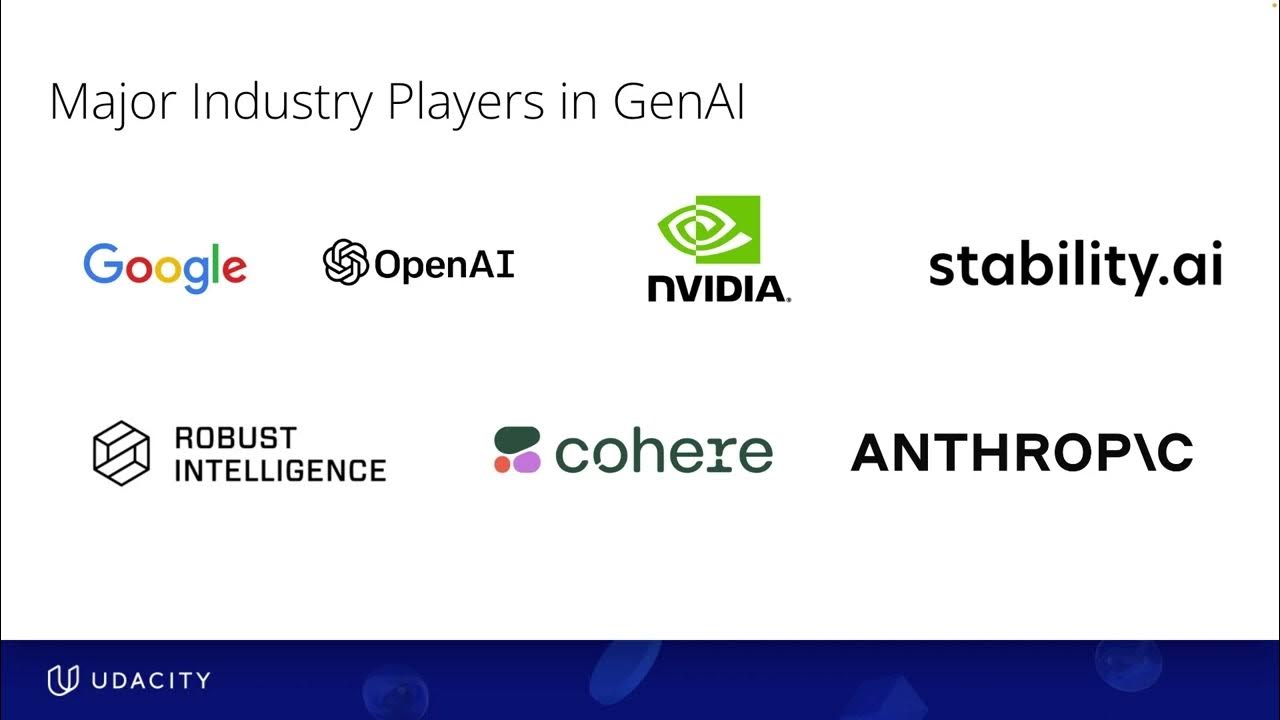Are AI and AR the Future of Advertising?
Summary
TLDRThe video explores the impact of generative AI on advertising and entertainment industries. It discusses how AI can clone celebrities like Shah Rukh Khan for ads, creating personalized content at scale. The script also touches on the ethical concerns of digital clones and the potential loss of authenticity in endorsements. Furthermore, it delves into hyper-personalization in marketing, the use of AI-generated models for diverse representation, and augmented reality for interactive shopping experiences, hinting at a future where technology redefines consumer engagement.
Takeaways
- 🌟 Bollywood star Shah Rukh Khan was digitally cloned for an advertising campaign, showcasing the power of generative AI in the film and advertising industry.
- 🎬 Generative advertising allows for the creation of numerous video ads using digital clones, eliminating the need for physical recording sessions.
- 📈 AI technology has revolutionized advertising by enabling hyper-personalization, tailoring ads to individual viewers based on their online data.
- 🌍 For the Hindu festival of lights, Diwali, an AI startup created a platform where small shop owners could produce their own ads featuring Shahrukh Khan.
- 🏪 Over a hundred thousand entrepreneurs utilized the service to create personalized ads, demonstrating the widespread appeal and application of AI in marketing.
- 🗣️ AI can make celebrities appear to speak multiple languages fluently, opening up new avenues for international advertising campaigns.
- 👥 The advertising industry is embracing diversity with AI-generated models that can represent a wide range of demographics, including age, size, and skin color.
- 🤔 There are ethical concerns surrounding the use of celebrity digital clones, including the potential for misuse and the authenticity of endorsements.
- 🛋️ Augmented reality apps are being used to enhance online shopping experiences by allowing customers to virtually try out products like furniture in their own homes.
- 📊 Spending on AR campaigns doubled worldwide, indicating a significant shift towards immersive and interactive advertising strategies.
- 🔮 The future of advertising lies in the seamless integration of AI and AR technologies, promising more personalized and engaging consumer experiences.
Q & A
How is generative AI changing the advertising industry?
-Generative AI is changing the advertising industry by allowing the creation of digital clones of celebrities for endorsements, enabling personalized ads without reshooting videos, and creating diverse AI-generated models for fashion and advertising campaigns.
What is an example of how generative AI is used in advertising?
-An example of generative AI in advertising is the campaign where Bollywood star Shah Rukh Khan was digitally cloned to promote small shops across India, allowing shop owners to create their own ads featuring the celebrity.
How does AI help in creating personalized ads?
-AI helps in creating personalized ads by analyzing user data to tailor commercials to individual interests, allowing for hyper-personalization where each person may see a different version of the ad based on their location, preferences, and online behavior.
What is the concept of 'hyper personalization' in advertising?
-'Hyper personalization' in advertising refers to the practice of tailoring ads to individual users based on their specific data, such as interests, online behavior, and personal information, to create a highly targeted and relevant ad experience.
How can AI-generated models be used in fashion advertising?
-AI-generated models can be used in fashion advertising to represent a wide range of body types, ages, skin colors, and sizes, providing a cost-effective and diverse representation of models for online clothing brands.
What are the potential risks associated with using digital clones of celebrities in advertising?
-The potential risks include the misuse of digital clones for purposes other than agreed, the loss of authenticity in celebrity endorsements, and the ethical concerns surrounding the use of AI-generated images that may deceive consumers.
How does AI technology allow for the creation of diverse models in advertising?
-AI technology allows for the creation of diverse models by generating artificial models that can represent various demographics, including different body shapes, ages, skin colors, and even disabilities, offering a more inclusive representation in advertising.
What is the role of augmented reality (AR) in the advertising industry?
-Augmented reality (AR) in the advertising industry allows users to virtually try products, such as furniture or glasses, before purchasing them. This technology enhances the shopping experience by providing a more interactive and personalized approach to online marketing.
How does AI-generated content in advertising address the issue of representation?
-AI-generated content in advertising addresses the issue of representation by creating a diverse range of models that can look like the target audience, ensuring that people from various backgrounds can see themselves reflected in the ads they consume.
What are the ethical considerations when using AI-generated models in advertising?
-Ethical considerations include ensuring that the AI models do not perpetuate stereotypes, maintaining transparency about the use of AI-generated images, and addressing concerns about authenticity and trust among consumers.
How does the use of AI in advertising affect the traditional roles of actors and models?
-The use of AI in advertising may reduce the need for traditional actors and models in some cases, as digital clones and AI-generated models can be used for endorsements and campaigns. This could potentially impact their careers and the way they are utilized in the industry.
Outlines

This section is available to paid users only. Please upgrade to access this part.
Upgrade NowMindmap

This section is available to paid users only. Please upgrade to access this part.
Upgrade NowKeywords

This section is available to paid users only. Please upgrade to access this part.
Upgrade NowHighlights

This section is available to paid users only. Please upgrade to access this part.
Upgrade NowTranscripts

This section is available to paid users only. Please upgrade to access this part.
Upgrade NowBrowse More Related Video

U8-04 V2 Wichtige Akteure der Branche V3

AWS re:Invent 2023 - Transforming the consumer packaged goods industry with generative AI (CPG203)

Midyear Tech Outlook: Where Industry Activity is Heating Up

Simplifying Generative AI : Explaining Tokens, Parameters, Context Windows and more.

Unraveling AI Bias: Principles & Practices

The AI Revolution: How will AI impact the business world? | The Exchange
5.0 / 5 (0 votes)